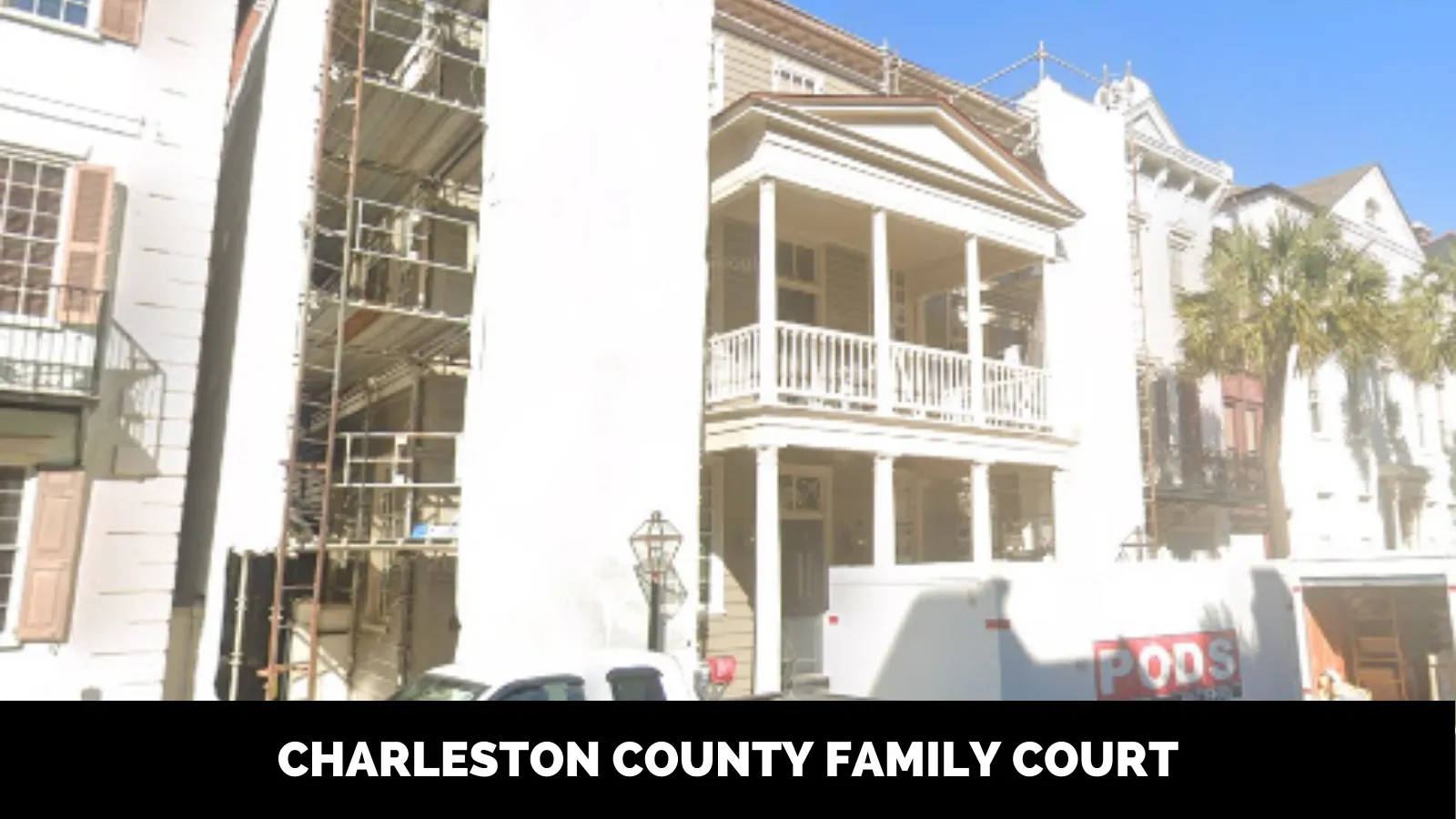Charleston County Family Court
Resolving Family Legal Matters with Clarity and Compassion
Location & Contact Information
Address: 100 Broad St #143, Charleston, SC 29401
Google Maps: Q3G9+P6 Charleston, South Carolina
Hours:
Monday–Friday: 8:30 AM – 5 PM
Saturday–Sunday: Closed
Phone: +1 (843) 958-4400
Website: Charleston County Family Court
Introduction to Charleston County Family Court
The Charleston County Family Court serves as a dedicated legal resource for families navigating sensitive disputes. Committed to fairness and impartiality, the court resolves issues impacting children, spouses, and domestic relationships. Located in historic Charleston, South Carolina, it ensures access to justice for all county residents.
What Cases Does the Family Court Handle?
The court oversees a range of family law matters, including:
- Divorce & Separation: Uncontested and contested dissolutions of marriage.
- Child Custody & Support: Establishing parenting plans, visitation rights, and financial obligations.
- Domestic Violence: Issuing protective orders and addressing abuse allegations.
- Adoption & Guardianship: Legalizing parental rights and child guardianships.
- Paternity: Establishing or contesting biological parentage.
Filing a Case: Step-by-Step Guide
- Determine Jurisdiction: Confirm your case falls under Charleston County’s authority.
- Complete Forms: Access the correct documents on the court website.
- Submit & Pay Fees: File forms in person or by mail with applicable fees (varies by case type).
- Serve the Other Party: Provide legal notice to involved parties via certified mail or process server.
- Attend Hearings: Appear for all scheduled court dates.
Pro Tip: Consult the court’s Self-Help Center for free forms and guidance if representing yourself (pro se).
Court Procedures Explained
- Pretrial Proceedings: Mediation or conferences to explore settlements.
- Trials: Present evidence and arguments before a judge if no agreement is reached.
- Mediation: A neutral mediator assists parties in resolving conflicts without trial.
Meet the Judges & Staff
Charleston County Family Court judges are seasoned attorneys appointed to uphold state laws. They prioritize children’s best interests in custody cases and ensure equitable outcomes. The supportive court staff assists with scheduling, records, and procedural inquiries.
Resources for the Public
- Self-Help Center: Guidance for self-represented individuals.
- Interpreter Services: Available for non-English speakers.
- Online Forms: Download divorce, custody, and domestic violence paperwork.
- Case Lookup: Access dockets and records via the SC Judicial Branch.
Tips for a Smooth Court Experience
- Prepare Thoroughly: Organize documents (e.g., financial records, communication logs).
- Dress Professionally: Business attire shows respect for the court.
- Arrive Early: Allow time for parking and security checks.
- Stay Calm & Respectful: Address the judge as “Your Honor” and avoid interruptions.
FAQs: Quick Answers
Q: How do I check my court date?
A: Visit the court’s online docket search or call +1 (843) 958-4400.
Q: Can I modify a custody agreement?
A: Yes, file a petition with the court demonstrating changed circumstances.
Q: What if I can’t afford a lawyer?
A: Contact SC Legal Services (www.sclegal.org) for low-income assistance.
Q: How long does a divorce take?
A: Contested divorces may take months; uncontested cases resolve faster.
Conclusion
The Charleston County Family Court empowers families to resolve disputes with dignity. Whether addressing custody, abuse, or divorce, understanding procedures and leveraging available resources ensures a fair process. For complex cases, consider consulting a family law attorney to protect your rights.
Need More Help?
Visit the court’s official website or call +1 (843) 958-4400 for personalized assistance.




